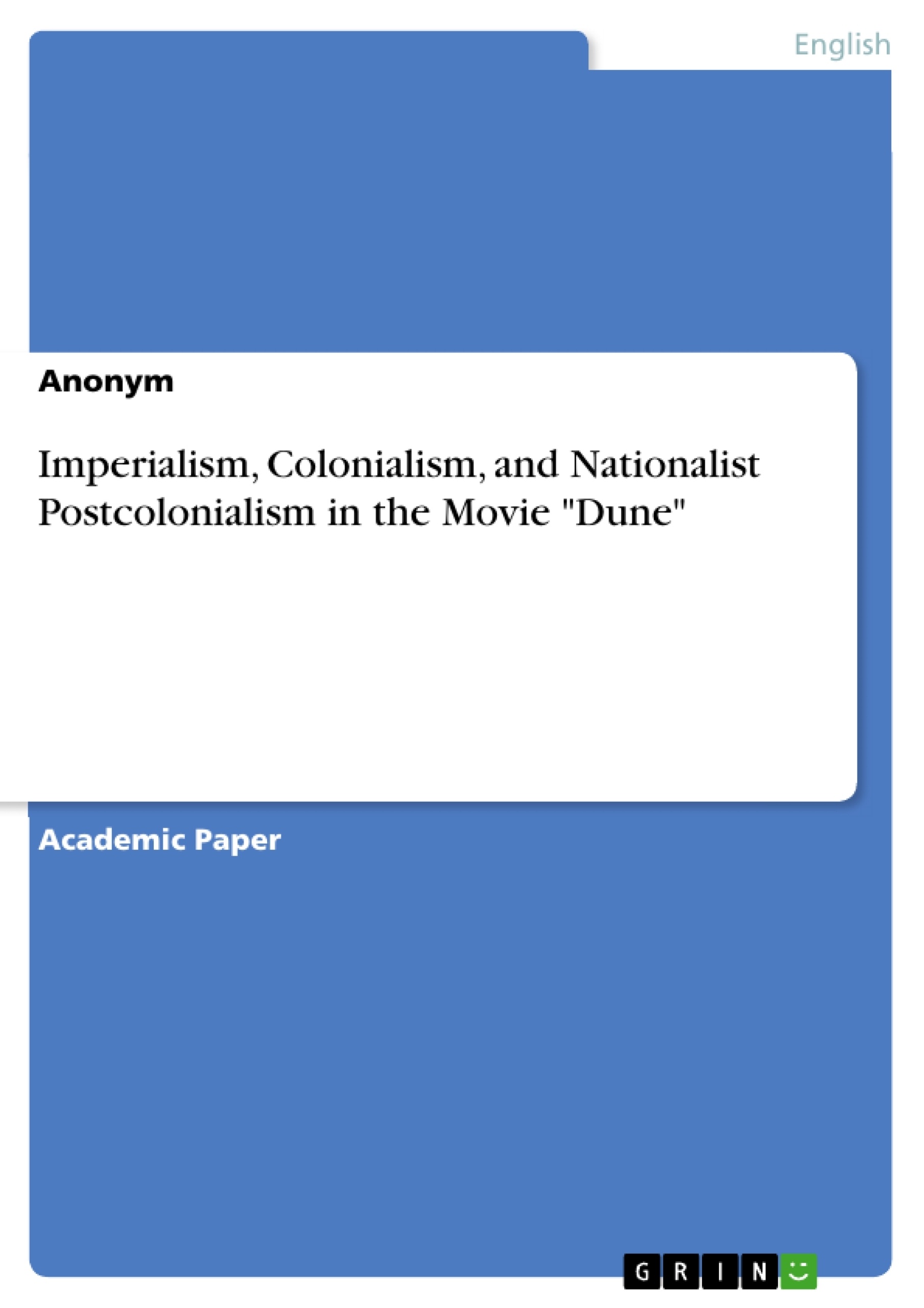In this analysis I will demonstrate how imperialism, colonialism and postcolonialism are constructed in the movie. To do so, I will first address those three concepts in the theoretical part of the work. For the analysis I will be focusing on the different power groups of the movie. Through different sequences of the movie, I will focus on the colonial and imperial oppression of the Fremen and will pay special attention to visual aspects observable in the movie.
The second part of the analysis deals with the different groups of the Empire, how they differ from House of Atreides, and how this difference is the basis for Paul Atreides, the scion of House Atreides and his Fremen allies to dominate and imperialise the Empire in the next movies. The differences between House Atreides, House Harkonnen and the Imperial Army are illustrated by the presentation of their home planets, which are examined in more detail in the analysis.
Table of Contents
- Introduction
- Concepts
- Imperialism and Colonialism
- Postcolonialism
- The Fremen
- Knowledge about the Fremen
- The Oppression of the Fremen
- The Empire
- House Atreides
- House Harkonnen
- Imperial Army
- Conclusion
Objectives and Key Themes
This analysis aims to demonstrate the construction of imperialism, colonialism, and postcolonialism in the movie Dune. It focuses on the various power groups within the film and explores the dynamics of colonial and imperial oppression of the Fremen. The analysis also examines the visual aspects of the movie and the differences between the different factions of the Empire, including House Atreides, House Harkonnen, and the Imperial Army.
- Imperialism and colonialism as forms of domination in science fiction
- The interplay between imperialism, colonialism, and nationalist postcolonialism
- The representation of indigenous peoples and their oppression
- The role of visual aspects in portraying power dynamics
- The differences between the factions of the Empire and their impact on the narrative
Chapter Summaries
- Introduction: This chapter introduces the topic of imperialism, colonialism, and postcolonialism in science fiction, particularly in the movie Dune. It highlights the conflict between indigenous peoples and imperial interstellar powers and the significance of postcolonial studies in understanding these dynamics.
- Concepts: This chapter defines the key concepts of imperialism, colonialism, and postcolonialism. It examines the different forms of domination and the distinctions between imperialism and colonialism. Additionally, it explores the different types of relationships between colonizers and colonized populations: extermination, assimilation, and relative equilibrium.
- The Fremen: This chapter delves into the knowledge and oppression of the Fremen, the indigenous people of Arrakis. It examines how the Fremen are portrayed in the movie and the challenges they face under imperial rule.
- The Empire: This chapter analyzes the different factions of the Empire, including House Atreides, House Harkonnen, and the Imperial Army. It explores their motivations, ideologies, and the visual representation of their power dynamics.
Keywords
The main keywords and focus topics of this analysis are: imperialism, colonialism, postcolonialism, science fiction, Dune, Fremen, House Atreides, House Harkonnen, Imperial Army, oppression, power dynamics, visual representation.
- Quote paper
- Anonym (Author), 2022, Imperialism, Colonialism, and Nationalist Postcolonialism in the Movie "Dune", Munich, GRIN Verlag, https://www.hausarbeiten.de/document/1270486



